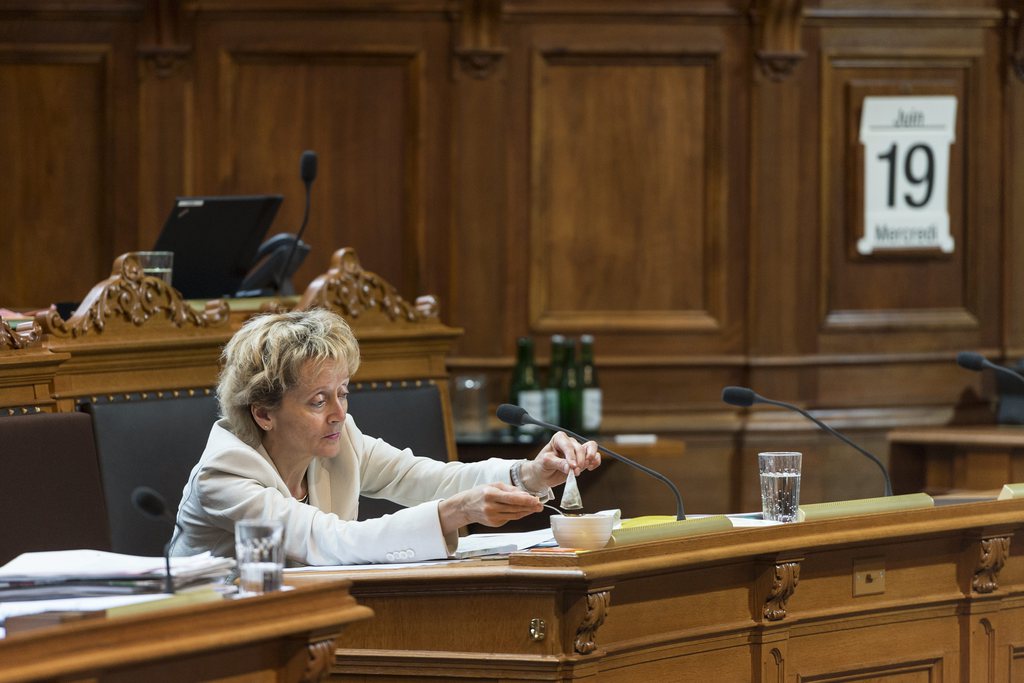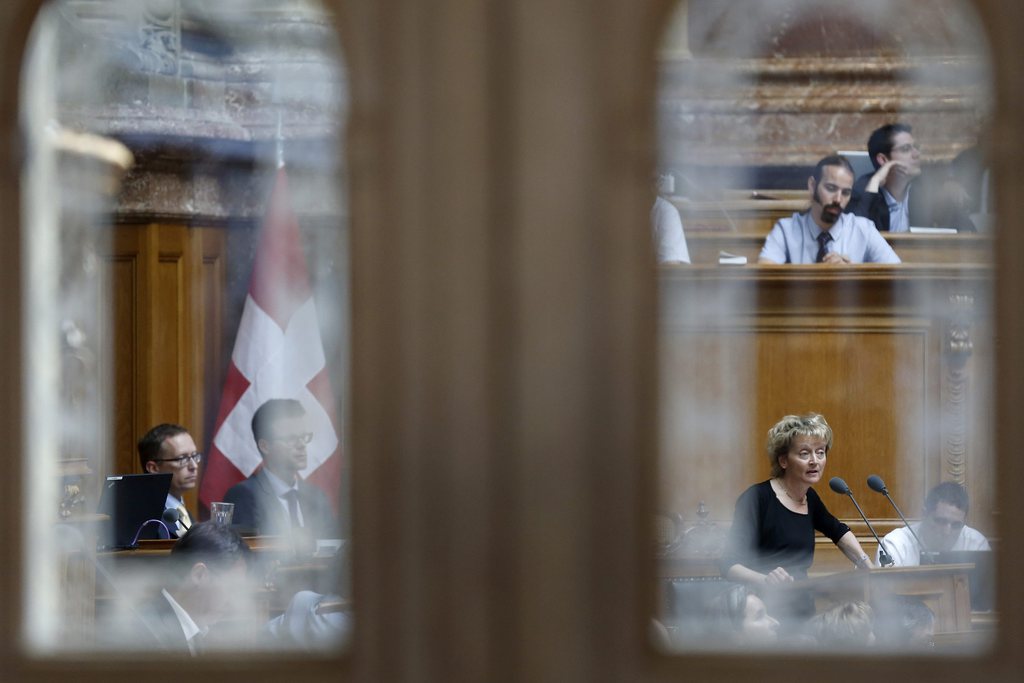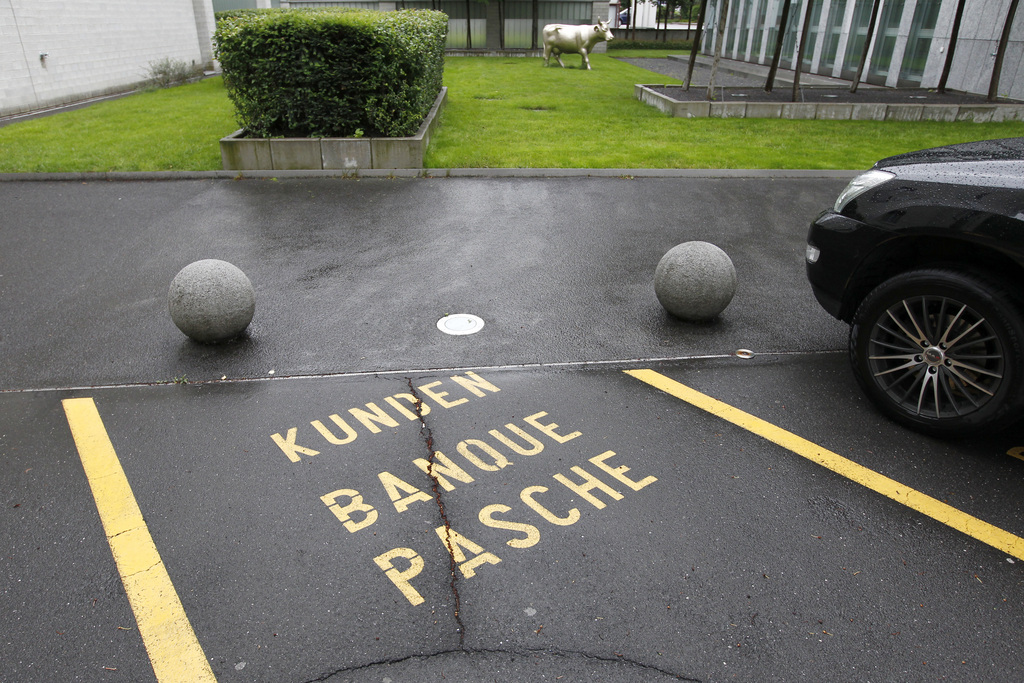Swiss parliament kills divisive US tax bill

Parliament has thrown out a draft law enabling Swiss banks to hand over confidential data to the United States for cracking down on suspected tax cheats. However, it called on the cabinet to find legal means to resolve the standoff.
For the second time in as many days, the House of Representatives on Wednesday rejected a government-sponsored bill which would have paved the way for the Swiss banks suspected of helping wealthy Americans evade taxes to take part in a US programme to come clean with their past.
An alliance of the rightwing Swiss People’s Party, the centre-right Radical Party and most of the centre-left Social Democrats won the upper hand with 123 votes against 63; votes in support of the legislation came mainly from centrist parties led by the Christian Democrats.
Opponents of the bill argued that not enough was known about the consequences of the law and that the deal could set a precedent for other countries waiting to put pressure on Switzerland.
They said it was up to the banks and the cabinet to act and accused the cabinet and supporters of alarmism over the possible impact of a rejection of the bill.
“Parliament must not act without full knowledge of the proposed deal and under pressure,” said Social Democrat Susanne Leutenegger Oberholzer.
Supporters of the bill again warned of unforeseeable consequences for the banking industry and the entire Swiss economy if the draft law is rejected.
“It risks destabilising the financial centre and causing legal uncertainty,” said Christian Democratic Senator Konrad Graber.
The clear refusal by the House came at the end of two weeks of heated debate and political manoeuvering by the main political parties in parliament.
The decision effectively killed the bank deal with the US despite a repeated and equally clear approval of the bill by the other parliamentary chamber, the Senate, earlier in the day. The Senate had already come out in favour during a preliminary vote last week.
At least 14 Swiss banks have been under investigation in the US suspecting of helping client evade taxes.
Two banks, including Switzerland’s oldest private bank Wegelin, were forced to close for business.
Switzerland’s biggest bank, UBS, in 2009 agreed to hand over more than 4,450 client names and pay a $780 million fine after admitting to criminal wrongdoing in selling tax-evasion services to wealthy Americans.
Switzerland’s second biggest bank, Credit Suisse, was put criminal investigation by US in 2011. The bank later makes a provision for a potential fine of CHF295 million.
Two employees and a former employee of the Zurich Cantonal Bank, Switzerland’s fourth largest financial institute, were charged in 2012 with helping rich American tax cheats.
Collateral damage
Finance Minister Eveline Widmer-Schlumpf on Wednesday reiterated that the government-sponsored bill was aimed at avoiding collateral damage for the banking industry.
She rejected allegations that Washington was treating Swiss banks harsher than suspected tax cheats in other countries. She also warned that failure to adopt the bill could lead to additional difficulties with a US law on future tax compliance by Swiss banks known as FATCA, which will be discussed in parliament in upcoming debates and come into force next year.
Widmer-Schlumpf hinted the government could consider granting individual banks the right to disclose confidential information if formally accused by the US.
She pledged that the protection of bank employees had priority, despite foreseeable difficulties.
“The cabinet cannot provide full legal protection for bank employees and financial intermediaries without a special law approved by parliament,” she added.
The Federal Data Ombudsman, Hanspeter Thür, told the Swiss news agency he would call on the highest administrative court to block any illegal transfer of data, notably information about bank employees.
Parliamentary declaration
Both chambers on Wednesday approved a parliamentary declaration recognising the need for Swiss banks to come clear with the US over tax matters of the past.
The statement calls on the cabinet to allow individual banks to hand over confidential data to the US through temporary suspensions of banking secrecy rules.
Supporters said it was an important signal to the US.
However, critics pointed out the statement is merely an effort to appease the US justice authorities, which are reportedly preparing for the indictment of more Swiss banks.
“The declaration is hot air for people who got cold feet,” quipped Christian Democratic parliamentarian Christophe Darbellay.
Regrets and praise
The Swiss Bankers Association (SBA) regrets the rejection of the banking deal with the US, it said in a statement published soon after the parliamentary decision. It called on the government to do everything in its power to ensure that the programme can be implemented.
“The banks cannot meet the requirements of the programme without legal certainty. The consequences thereof for the financial centre and the entire Swiss economy are incalculable,” the statement read. The SBA also expressed via Twitter that legal paths still needed to be opened to allow banks to co-operate with the US.
After parliament‘s „no“ to #LexUSAExternal link: now the government needs to set the legal conditions in order that banks can participate in US programme
— SwissBanking (@SwissBankingSBA) June 19, 2013External link
For its part, the Association of Swiss Fiduciaries and Tax Accountants said it was pleased with the decision by parliament.
“It allows Switzerland to resolve the tax dispute with the US using the proper legal procedure and in cooperation with all parties affected.”
Banking secrecy
Had the bill gone through, Swiss banks would have had the option of taking 120 days to negotiate a settlement with the US justice authorities. The draft law also foresaw unspecified fines for banks which plead guilty of helping taxpayers hide assets from the US authorities.
It is estimated that more than 200 Swiss banks will have to find a legal solution with Washington.
Over the past few years, at least 14 banks have been under investigation by the US, two of which were forced to close their doors for business.
In 2009, Switzerland’s largest bank UBS handed over nearly 4,500 names to the US and agreed to pay a hefty fine. Cabinet gave the green light for the name transfer with an emergency decision that temporarily suspended Swiss banking secrecy.

In compliance with the JTI standards
More: SWI swissinfo.ch certified by the Journalism Trust Initiative




You can find an overview of ongoing debates with our journalists here. Please join us!
If you want to start a conversation about a topic raised in this article or want to report factual errors, email us at english@swissinfo.ch.